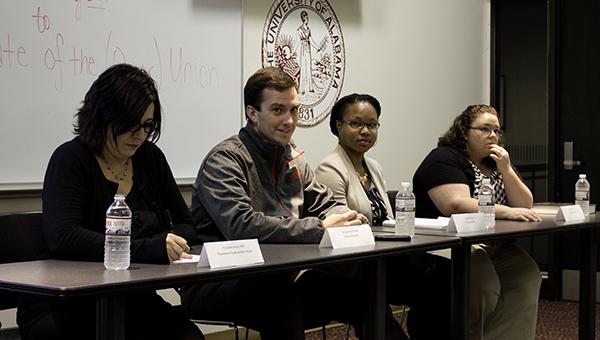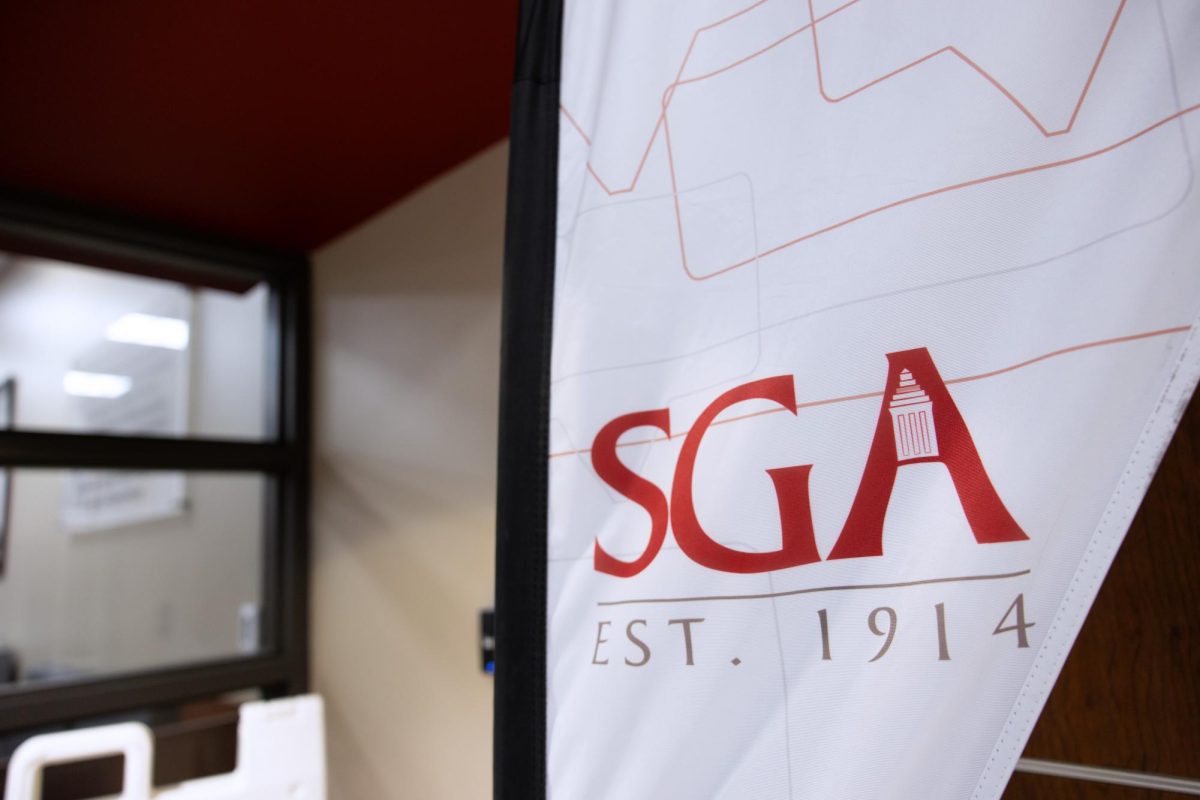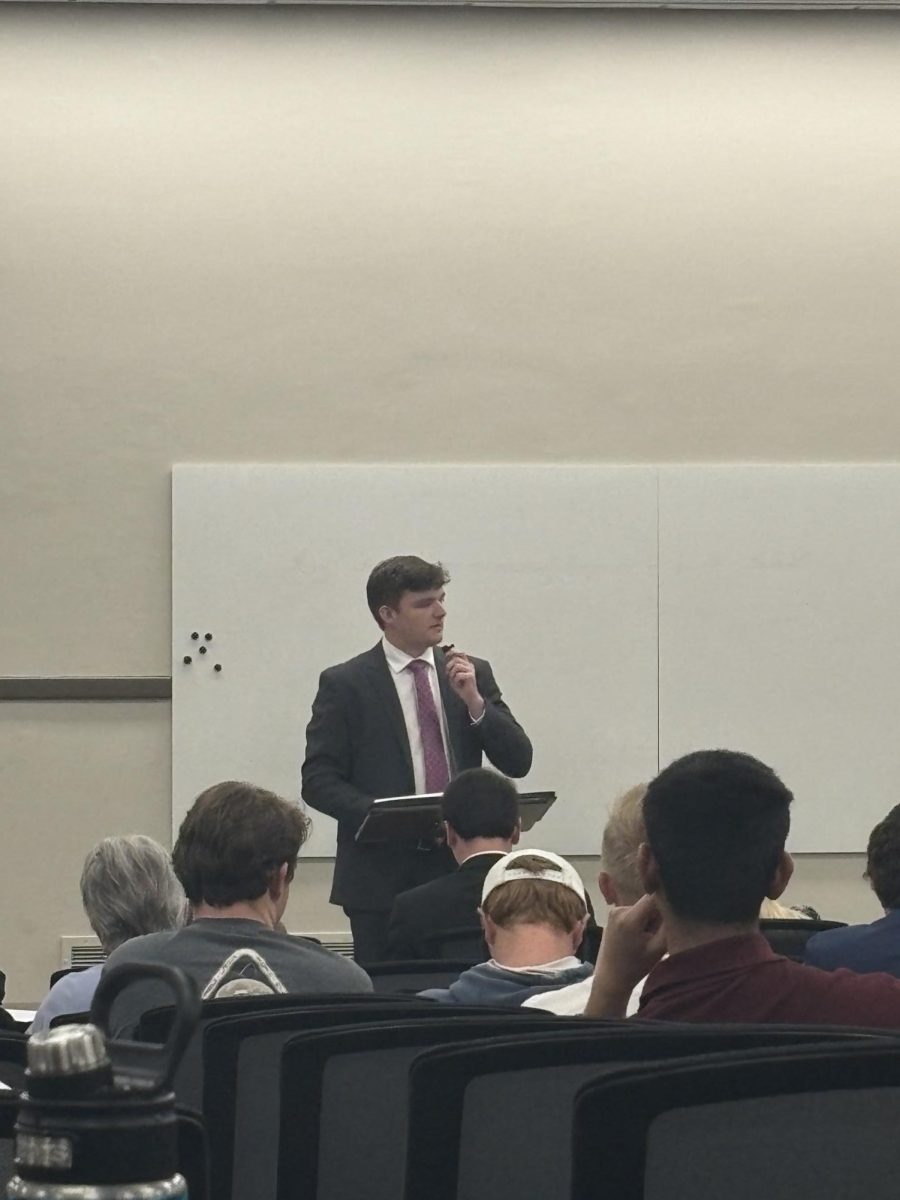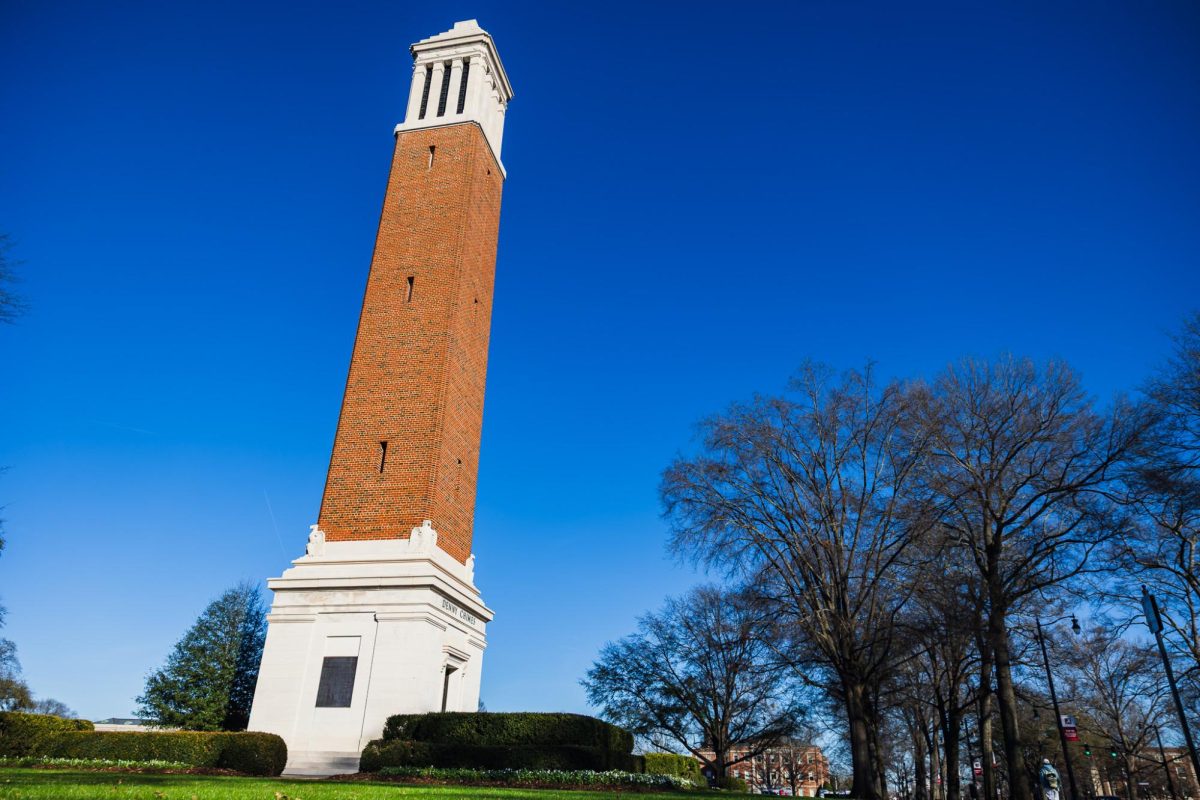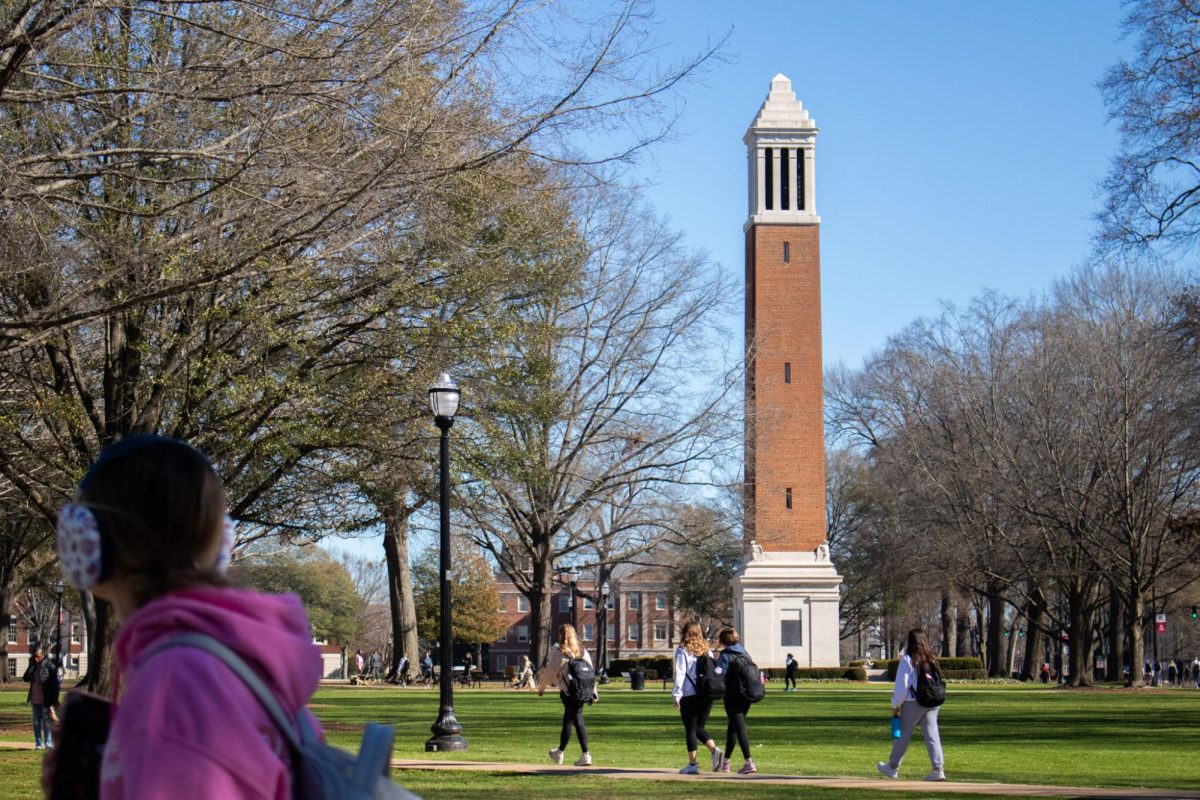Students and faculty members gathered at the Ferguson Center for the first annual State of the (Queer) Union presented by the UA Feminist Caucus. At the event, a four-member panel addressed various deep issues facing the LGBTQ culture and American society at large.
Ben Ray, event and programming coordinator for the UA Feminist Caucus, facilitated the State of the (Queer) Union.
“Our hope is that this event will raise awareness in the LGBTQ communities in the area about issues, both political and social, that are very important to these communities,” he said.
Some issues addressed by the group included genuine representation of the LGBTQ population in state and federal positions, student apathy regarding LGBTQ issues, goals of the LGBTQ community and ways that individuals can develop a personal platform for change.
One of the larger issues discussed during this event revolved around those who identify as queer. This may not be a term familiar to many. This term, seen by some as offensive for its earlier usage, is now used as a positive, gender-neutral term for individuals who do not identify as heterosexual. The LGBTQ is facing an issue when it comes to the acceptance of only “traditional” non-normative couples (i.e. gay, lesbian, and bisexual relationships) as “real” couples. In some instances, queer relationships, such as polyamorous or inter-generational relationships, have not been given the legitimacy that LGB couples are now gaining.
Jason Garvey of the College of Education encouraged students to “celebrate the full spectrum of human relationship.” Garvey and many other members of the discussion said one should not limit non-normative sexuality to being lesbian, gay or bisexual. Acceptance of all the various types of human relationships is a goal of many in this effort for social reform.
The forum also addressed the apathy of the general student body regarding various aspects of the LGBTQ cultural movement.
Samaria Johnson, panelist and president of the Alabama Alliance for Sexual and Reproductive Justice, stressed to students that they can make an impact if they are willing to act.
“Students don’t realize the power they have,” said Johnson.
She went on to encourage students to speak out when faced with injustice, and especially to address administration in the effort to make a direct impact on a campus like that of the University.
Members of the discussion listed social media and involvement with groups like Southerners On New Ground as ways to resist apathy on campus and off.
Cassidy Ellis, a first year graduate student with a major in gender and race studies, said students and the University must recognize the legitimacy of the LGBTQ community.
She said the installation of gender-neutral restrooms for those who may not feel comfortable being forced to identify themselves as male or female would be beneficial.
“There is so much that students and UA as a whole can do to create an environment where all can feel safe and comfortable,” said Ellis.



